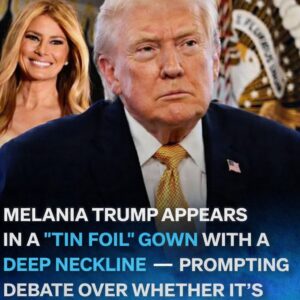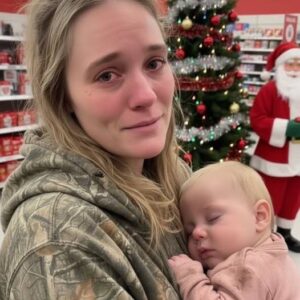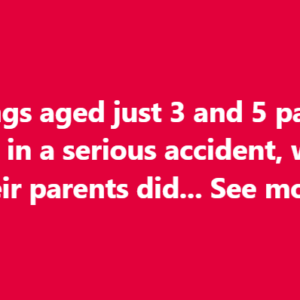Jane Goodall, the pioneering primatologist who changed how the world understands both animals and itself, passed away on October 2, 2025, at the age of 91. For more than six decades, Goodall’s quiet courage and deep curiosity bridged the gap between species, showing that empathy, intelligence, and even morality were not uniquely human traits.
But her work was never just about chimpanzees — it was about us. And in her later years, she did not hesitate to hold up a mirror to human society, even when what she saw reflected wasn’t flattering.
Among her most talked-about observations was one she made about former U.S. President Donald Trump. During his first presidential campaign in 2016, when rallies often turned into roaring spectacles, Goodall drew an unlikely but sharp comparison between Trump’s public persona and the behavior of dominant male chimpanzees in the wild.
“I understand that kind of display,” she said at the time. “The stamping, the shouting, the grandstanding — it’s what male chimpanzees do when they’re competing for power. They make themselves appear bigger, louder, and stronger than they really are.”
Her remark was not meant as ridicule, but as anthropology — an honest observation from someone who had spent her life decoding the language of behavior. In the forests of Gombe, Tanzania, where she began her studies in 1960, Goodall had watched alpha males assert dominance not just through aggression, but through showmanship. The most successful were not necessarily the strongest, but the most strategic — those who learned to inspire, intimidate, and manipulate perception.
When asked again years later if she still stood by her comparison, Goodall chuckled. In a 2022 MSNBC interview, she was shown a clip of Trump hugging the American flag and declaring himself “a perfect physical specimen.” Her response was gentle but cutting: “It reminds me of male chimpanzees who puff themselves up — shaking branches, dragging logs, making displays to appear larger and more important than they are. It’s all about dominance.”
She wasn’t sneering; she was explaining. Goodall’s strength had always been her ability to look at even the most volatile behavior with scientific detachment and, somehow, still find compassion within it. “The difference,” she added, “is that chimpanzees eventually calm down. They reconcile. Humans sometimes don’t.”
That distinction — our inability to move past division — worried her more than any one politician. In her later years, Goodall often spoke about the social fractures tearing at modern society. “We’ve learned so much about intelligence, about cooperation,” she said in a 2023 lecture in London. “Yet the more we know, the less we seem to listen to each other. We’ve become a species capable of both incredible love and incredible cruelty — and often, they coexist in the same moment.”
Her commentary on Trump, then, wasn’t just about a man. It was about what he represented: the primal instincts still driving human politics — fear, competition, and the deep hunger to belong to a group, even when that belonging comes at someone else’s expense.
But she also believed in humanity’s capacity to evolve beyond it. “Chimpanzees fight for power,” she said. “Humans can choose to fight for peace. The problem is, we don’t always remember that choice is ours.”
Jane Goodall’s insights into behavior — both animal and human — came from a life lived in close observation. Born in London in 1934, she entered the jungles of Tanzania in her twenties with nothing but a notebook, a pair of binoculars, and an unshakable belief that science should include empathy. Her discoveries were revolutionary: chimpanzees using tools, showing emotion, mourning their dead. She shattered the wall separating “human” and “animal.”
But she didn’t stop at science. Over the next sixty years, she became a global voice for conservation, peace, and compassion. She founded the Jane Goodall Institute and the Roots & Shoots youth program, which continues to empower millions of young people around the world to protect the planet. Even in her eighties, she traveled constantly — speaking softly but moving crowds to tears with her message: “What you do makes a difference, and you have to decide what kind of difference you want to make.”
That conviction carried her through the chaos of the 21st century — pandemics, wars, and political unrest. She saw echoes of chimpanzee hierarchies in modern governments and corporate boardrooms but always urged people not to despair. “Yes, there’s aggression in our DNA,” she said in a 2021 interview. “But there’s also love, compassion, curiosity — the things that built art, music, and friendship. We just have to choose which side to feed.”
When journalists pressed her on her outspoken remarks about world leaders, she often smiled and said, “I don’t speak politics. I speak behavior.”
She viewed Trump’s bombast and the world’s polarized reactions to him as evidence of a deeper human struggle — the same one she saw in her beloved chimpanzees. “Dominance displays divide,” she once said. “But what maintains peace in a group is empathy. Even chimpanzees know when to comfort, when to groom, when to forgive.”
In her final interviews, Goodall spoke less about individuals and more about the collective spirit of humanity. “If you watch a chimpanzee mother,” she told the BBC in 2024, “you’ll see patience, tenderness, sacrifice — qualities that make survival possible. We need to find those same instincts again in ourselves if we’re going to make it through what’s coming.”
Her warnings about climate change were blunt but hopeful. “We’ve harmed the planet, but the planet can heal if we let it,” she said. “The real question is whether we’ll heal ourselves — our relationships with each other, with nature, with truth.”
Jane Goodall’s commentary on Donald Trump became one of those cultural moments that people never stopped quoting — sometimes out of humor, sometimes out of admiration. But to her, it was never about mockery. It was about reflection.
“He behaves like a dominant male chimp,” she said once, “but perhaps that’s why so many people recognize him. It’s a performance we understand instinctively — one that reminds us how thin the line is between the jungle and the world we’ve built around it.”
Even as her health declined, Goodall kept speaking to young audiences. Her final message, recorded weeks before her passing, was short and unmistakably her:
“Don’t give up on the world. There’s still so much good. There’s still time to be kind.”
Her legacy now stands as one of the most extraordinary in modern science — not only for redefining our relationship with the natural world but for teaching us that understanding begins with humility.
Jane Goodall saw humanity for what it was — flawed, noisy, emotional — yet still capable of something better. She reminded us that we are not separate from nature, but part of it, bound by the same instincts and choices that govern all life. And while she could see the animal in us, she also believed, fiercely, in the potential for grace.
Her words, once about a politician, were really about all of us:
“We’re clever enough to destroy the world,” she said. “Now we must be wise enough to save it.”





